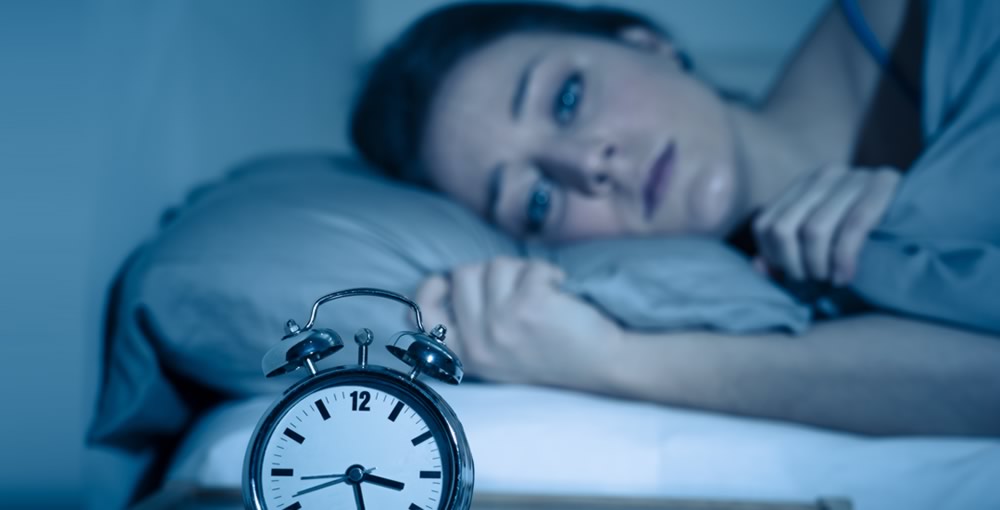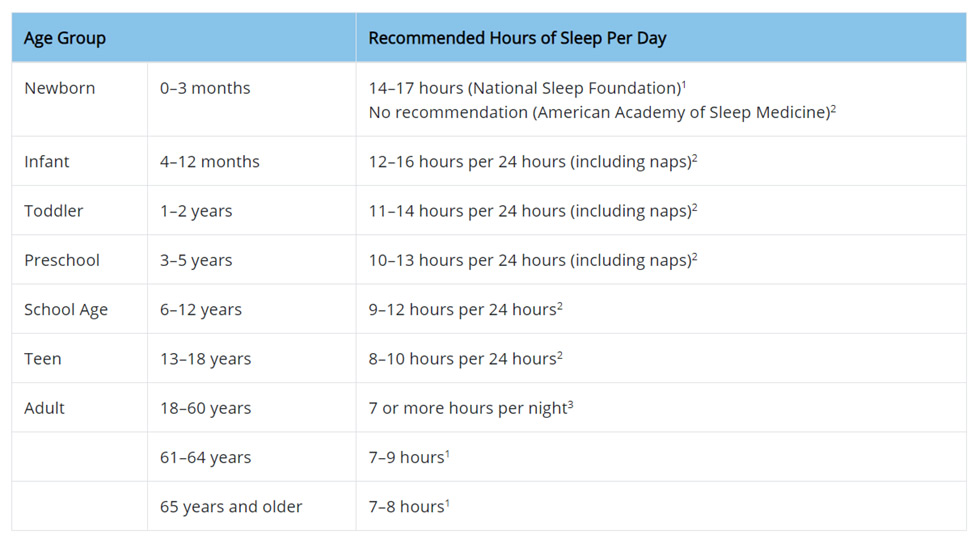How much sleep is enough?
March 29, 2021

8 Hours of ZZZZ’s Prevents Illness
Sleep is important at any age. Whether you’re 3 weeks old or 83 years young, getting adequate sleep isn’t only important for staying alert—it can keep you from getting sick.
Sleep requirements vary depending upon age, with infants requiring 14 – 17 hours of sleep each day and adults 61 and older needing 7 – 9 hours.

Graphic source: CDC
When it Comes to Sleep, Quality Counts
While it is important to get enough sleep, the quality of sleep you’re getting is equally important. Symptoms of poor-quality sleep include feeling tired after getting the recommended amount of sleep, waking frequently during sleep, or exhibiting symptoms of a sleep disorder such as snoring or gasping for breath. Be sure to discuss any potential sleep disorder symptoms with your doctor.
Health Implications
According to the CDC, a staggering one third of adults in the United States report getting less than the recommended amount of sleep.
Chronic poor sleep is not just an annoyance—it can have serious repercussions on your health. Adults getting less than 7 hours of sleep in a 24-hour period are at an increased risk of becoming obese and physically inactive, and are also more likely to report having chronic health conditions such as diabetes, cardiovascular disease, and depression.
Tips for Improving Sleep Quality
- Consistency is Key – Having a bedtime routine can help train your body to fall asleep each night. Go to bed at the same time every night and get up at the same time each morning, even on weekends.
- Set a Sleepy Mood – Try to keep your bedroom, dark, quiet, relaxing, and at a comfortable temperature. According to the Sleep Foundation, the ideal room temperature for promoting sleep is 65 degrees Fahrenheit.
- Nix Electronics – Remove electronics from your bedroom (television, computer, laptop, cell phone, etc.)
- Watch What You Eat – Avoid consuming large, heavy meals, caffeine, or alcohol before bedtime.
- Say No to Tobacco – Avoid using tobacco products.
- Move During the Day – Exercise during waking hours can help you fall asleep at night.
- Try Cognitive Behavioral Therapy – Often called CBT-I, this therapy has been found helpful for those with chronic sleep problems and involves creating an individualized program to identify and modify thoughts and behaviors that inhibit sleep. While individual plans vary, CBT-I often involves removing factors that condition the mind to resist sleep, changing lifestyle habits (smoking, drinking alcohol, consuming caffeine) that influence sleep, and learning relaxation therapy techniques (including meditation and muscle relaxation) to help the body prepare for sleep.
Unlike sleep medications, which are best used on a short-term basis, CBT-I treats the underlying causes of insomnia and other sleep-related issues and can provide a long-term solution. In some instances, sleep medications may be used synergistically with CBT-I to offer long-term relief. To find a certified sleep center near you, visit the American Academy of Sleep Medicine website.
If you continue to struggle with getting quality sleep after implementing these tips, it may be time to talk to your doctor. Consider keeping a sleep journal for 10 days prior to your doctor visit and record details such as when you go to bed, the approximate time you fall asleep, when you wake up, whether you took naps or exercised during the day, and what you ate and drank before bed. Be sure to tell your doctor what medication you currently take, including any over-the-counter supplements. Such information can help your doctor help you get the high-quality sleep you need.




